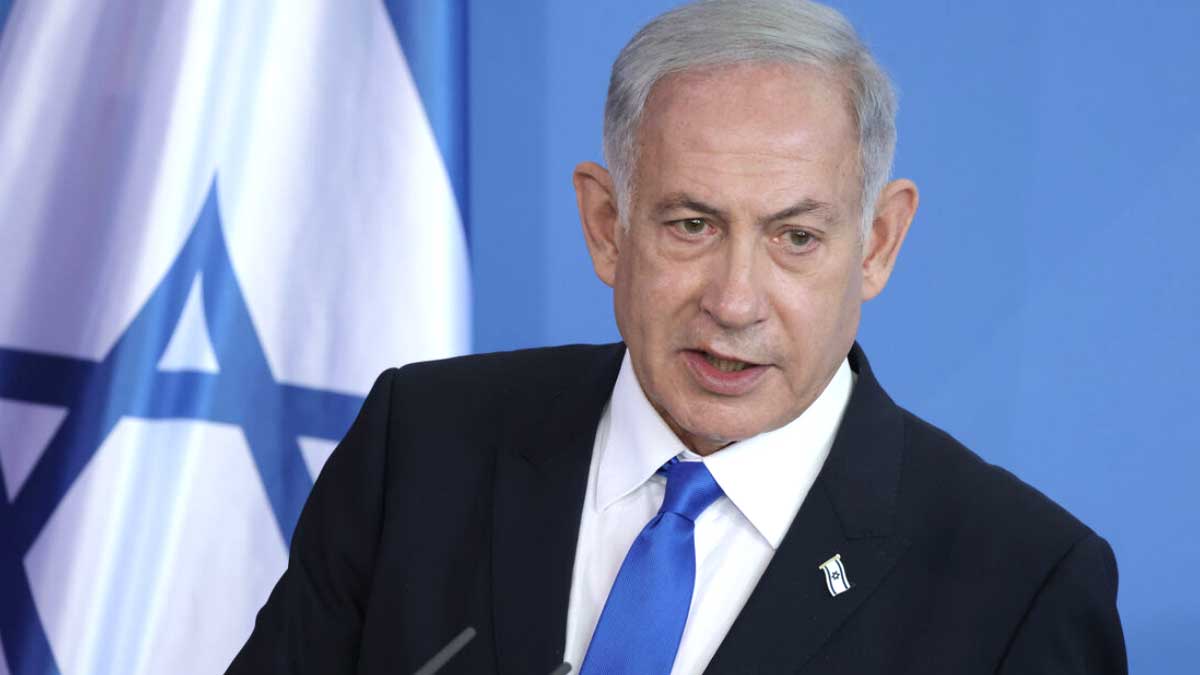- Home
- Billionaires
- Investing Newsletters
- 193CC 1000
- Article Layout 2
- Article Layout 3
- Article Layout 4
- Article Layout 5
- Article Layout 6
- Article Layout 7
- Article Layout 8
- Article Layout 9
- Article Layout 10
- Article Layout 11
- Article Layout 12
- Article Layout 13
- Article Layout 14
- Article Sidebar
- Post Format
- pages
- Archive Layouts
- Post Gallery
- Post Video Background
- Post Review
- Sponsored Post
- Leadership
- Business
- Money
- Small Business
- Innovation
- Shop
Recent Posts
Israel and Lebanon Agree to Cease-Fire, Halting Hezbollah Conflict

Israel and Lebanon have reached a cease-fire agreement to halt hostilities between Israel and the Lebanese militant group Hezbollah, according to an announcement by U.S. President Joe Biden on Tuesday. The development comes after more than a year of intermittent conflict between the two sides, even as Israel remains engaged in its ongoing war with Hamas. The cease-fire is set to take effect at 4 a.m. local time on Wednesday and is designed to establish a permanent cessation of hostilities.
The U.S. and France played pivotal roles in brokering the agreement. The deal includes a 60-day framework during which both parties will cease military actions, and Israel will initiate its withdrawal from Lebanon. President Biden emphasized the international commitment to ensuring the agreement’s implementation, noting that while the U.S. and France will provide support, there will be no deployment of American troops in Lebanon.
The Israeli Security Cabinet approved the agreement with a decisive 10-1 vote. Israeli Prime Minister Benjamin Netanyahu thanked President Biden for the U.S.’s involvement in securing the cease-fire and highlighted Israel’s freedom to enforce the agreement’s terms. Netanyahu described the cease-fire as a strategic decision to focus Israel’s military efforts on Hamas and Iran, isolating the latter’s influence over regional conflicts. Both Hamas and Hezbollah receive significant backing from Iran.
The announcement follows a period of heightened tension and violence. Since October 8, 2023—one day after Hamas launched a major attack on Israel—Hezbollah has fired rockets into Israel in support of Hamas, prompting Israeli retaliatory strikes in Lebanon. These hostilities have led to significant displacement, with at least 1.2 million people forced to flee their homes in southern Lebanon and 60,000 Israelis displaced from northern border regions. Israel intensified its actions in recent weeks, targeting Hezbollah strongholds in Lebanon and advising civilians in affected areas to evacuate.
The agreement has raised hopes for broader peace efforts in the region. Speaking about the deal, U.S. Secretary of State Antony Blinken expressed optimism, suggesting it could save lives, enable displaced individuals to return home, and pave the way for a resolution to Israel’s conflict with Hamas. Blinken emphasized that the cease-fire could demonstrate to Hamas the futility of relying on additional fronts opening in the war, potentially encouraging progress toward peace in Gaza.
President Biden echoed these sentiments, underscoring the importance of ending the fighting and displacement in Gaza. He expressed hope that the agreement between Israel and Lebanon might create momentum for a broader cease-fire with Hamas. However, the current cease-fire does not directly address Israel’s ongoing war with the Gaza-based militant group.
The protracted conflict between Israel and Hezbollah has severely impacted civilian populations on both sides. In southern Lebanon, civilians have faced relentless airstrikes and warnings to evacuate, while Hezbollah’s rocket attacks have targeted Israeli communities near the border. Earlier escalations included a deadly attack in September when Israel destroyed Hezbollah-operated radios and pagers rigged with explosives, resulting in nearly 40 deaths and thousands of injuries. Despite the reported cease-fire, as late as Tuesday, Israel launched strikes into Hezbollah-controlled areas in Lebanon, further escalating tensions.
While the agreement marks a significant step toward stability in the region, it remains unclear whether it will influence the ongoing conflict with Hamas. Blinken suggested that isolating Hamas could undermine its strategy and force a reevaluation of its approach. However, the complex dynamics of the Middle East and the entrenched hostilities between various factions make the road to lasting peace uncertain.
The cease-fire agreement has been met with cautious optimism by international observers, who view it as a critical opportunity to reduce violence and alleviate the humanitarian crisis. With millions displaced and significant destruction on both sides, the cessation of hostilities could provide a much-needed reprieve for affected communities. However, the durability of the agreement will depend on the willingness of both Israel and Hezbollah to adhere to its terms and the ability of international stakeholders to ensure its successful implementation.
As the cease-fire takes effect, the focus will likely shift to addressing the broader challenges facing the region. The ongoing conflict in Gaza, the influence of external actors like Iran, and the deep-seated animosities between various factions remain significant hurdles to achieving comprehensive peace. Nevertheless, the agreement between Israel and Lebanon represents a critical step forward, offering a glimmer of hope in a region long plagued by violence and instability.
Recent Posts
Categories
- 193 Countries Consortium Partner1
- 193cc Digital Assets2
- 5G1
- Aerospace & Defense48
- AI37
- Arts3
- Banking & Insurance11
- Big Data3
- Billionaires933
- Boats & Planes1
- Business332
- Careers13
- Cars & Bikes79
- CEO Network1
- CFO Network17
- CHRO Network1
- CIO Network1
- Cloud10
- CMO Network18
- Commercial Real Estate7
- Consultant1
- Consumer Tech194
- CxO1
- Cybersecurity73
- Dining1
- Diversity, Equity & Inclusion4
- Education7
- Energy8
- Enterprise Tech29
- Events11
- Fintech1
- Food & Drink2
- Franchises1
- Freelance1
- Future Of Work2
- Games149
- GIG1
- Healthcare79
- Hollywood & Entertainment203
- Houses1
- Innovation46
- Investing2
- Investing Newsletters4
- Leadership65
- Lifestyle11
- Manufacturing1
- Markets20
- Media195
- Mobile phone1
- Money13
- Personal Finance2
- Policy569
- Real Estate1
- Research6
- Retail1
- Retirement1
- Small Business1
- SportsMoney42
- Style & Beauty1
- Success Income1
- Taxes2
- Travel10
- Uncategorized12
- Vices1
- Watches & Jewelry2
- world's billionaires902
- Worlds Richest Self-Made Women5
Related Articles
South Korea Plane Crash: A Tragic Loss and Global Mourning
The tragic plane crash at South Korea’s Muan International Airport on Sunday...
By 193cc Agency CouncilDecember 30, 2024H-1B Visa Debate Splits Trump Allies and Silicon Valley
The debate over H-1B visas has once again become a contentious issue,...
By 193cc Agency CouncilDecember 28, 2024Trump Moves $4B Stake in Truth Social Parent, Stock Drops 6%
Donald Trump recently transferred his 57% stake in Trump Media & Technology...
By 193cc Agency CouncilDecember 20, 2024House Rejects Trump-Backed Funding Bill, Shutdown Looms
The U.S. House of Representatives rejected a new government funding bill on...
By 193cc Agency CouncilDecember 20, 2024











Leave a comment